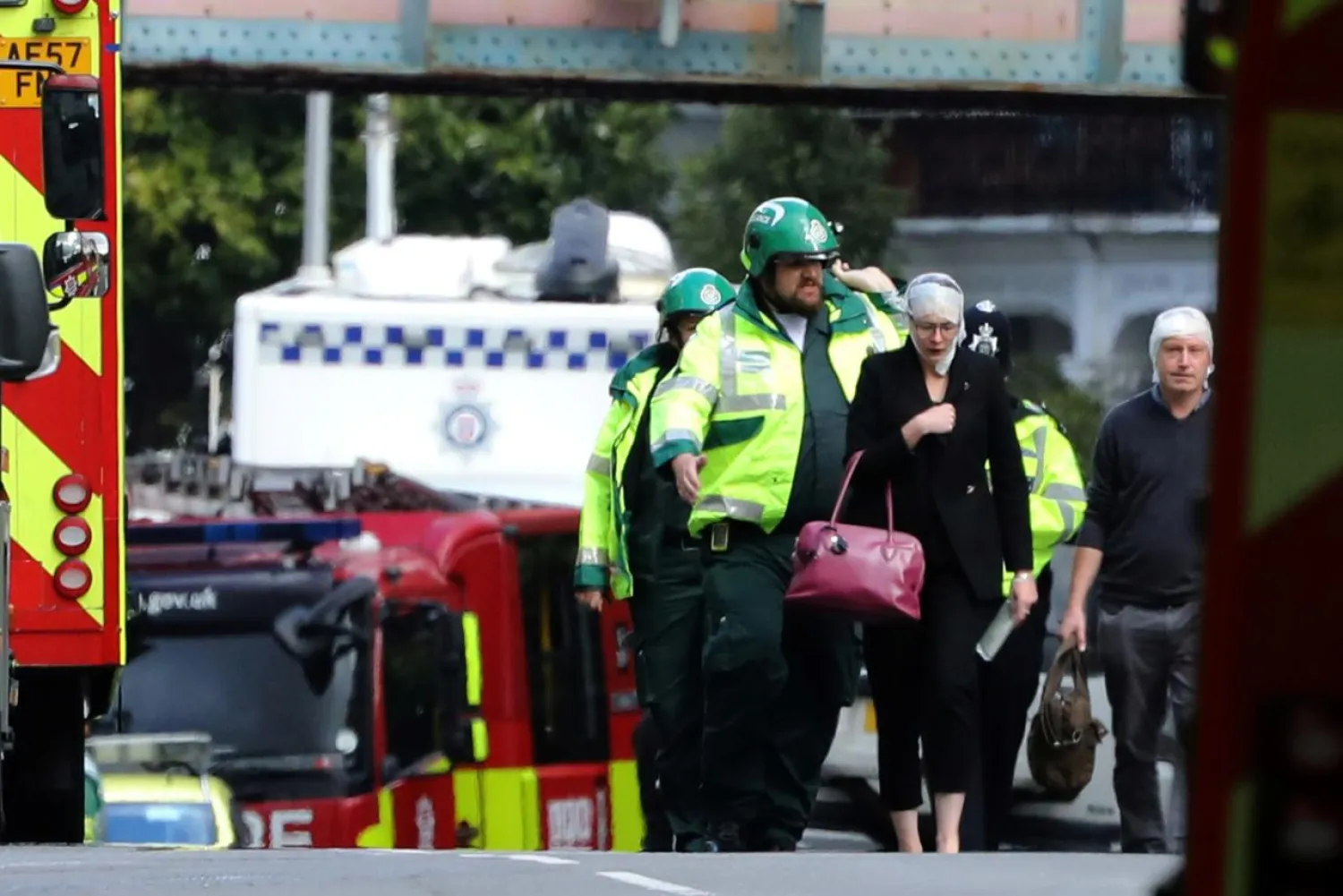British police hunting those behind a homemade bomb attack, which injured 30 people on a London underground train on Friday, said they had arrested an 18-year-old man in a “significant” move.
"We have made a significant arrest in our investigation this morning," Neil Basu, Senior National Co-ordinator for Counter Terrorism Policing, said in a statement. "Although we are pleased with the progress made, this investigation continues and the threat level remains at critical."
The man was arrested by Kent police under the Terrorism Act in the southern port area of Dover on Saturday morning.
Thirty people were treated in hospital after the improvised device detonated in the packed train at Parsons Green station in southwest London on Friday morning, in what was Britain's fifth terror attack in six months.
The toll was revised upwards by one early Saturday.
Images from inside the train car after the blast showed that the device was contained in a bucket with wires hanging out of it and that it was concealed in a plastic shopping bag.
Police are combing through closed-circuit TV images and have extensively studied the remains of the device without giving details about it.
The train hit by the bomber had video cameras in each car, and the London Underground network has thousands of cameras at the entrances to stations and along the labyrinth of subterranean and aboveground passageways leading from the entryway to the trains.
Saturday's “arrest will lead to more activity from our officers," police said.
"For strong investigative reasons we will not give any more details on the man we arrested at this stage.
ISIS said a group "detachment" had been behind the bombing.
Prime Minister Theresa May announced late Friday that the threat level had been raised to "critical -- meaning another attack could be imminent -- and said troops would take over guarding key sites to free police officers for deployment elsewhere.









